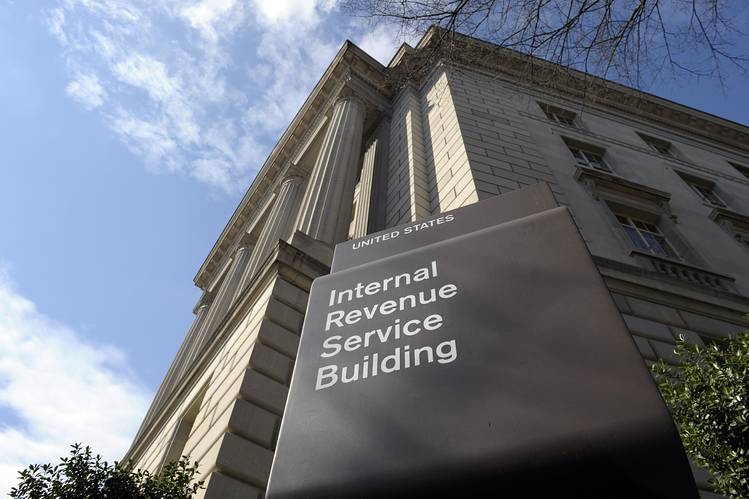Tax Season’s Best Questions
We get a lot of good questions from Expats around the globe during the April 15 and October 15 tax seasons. Here are a few from this go-round.
Moving to a High Tax Country
Q: “I’ve just moved to Australia in the last year. I currently have very little assets in the US and am working for An Australia company building a saving account in Australia. I am planning on purchasing a home and or investment property in the next 12 months with the intention of having around 5 properties in a few years. I’m trying to plan in advance to avoid long term capital gains and use smart tax strategies. I am planning on buying in Australia and own no property in the US. Will the US tax my income and capital gains? If you have any suggestions on resources to utilize I’d be very appreciative.”
A: Unfortunately for you, US tax will not be an issue. This is because your tax rate in Australia is certain to be higher than it would be in the US. For example, your personal tax rate in Australia will start at 19%, and max out at 45% on income over $180,000. Your rate in the US on income over $180,000 should be 28% to 39.6%.
Making things worse, Australia does not have a capital gains rate…capital gains are taxed the same as your ordinary income. Therefore, long term gains in Australia might be taxed at 45% compared to 20% in the US.
When you move out of the US to a country with a higher tax rate, you should not expect to pay any tax to the US. You must still file your US tax returns each year, but the Foreign Tax Credit should eliminate any US tax on your Australian income.
The Cost of Compliance
Q: “Thanks for the wonderful newsletter. I hope I get this email to you. I believe that someone from US would have a very hard time when opening up an IBC as it gets really expensive to file IBC paperwork with the CPAs. If also exiting the US with expatriation, it would cause problems with expatriation taxes. My CPA keeps on telling me that it would require $4,000-$5,000 dollars just to file all the forms needed. I was shocked at the costs…I am confused since they both told me there are a lot of people selling these offshore vehicles which can get me in a lot of requirements and problems. This is the same answer that I got from various tax attorneys in USA.”
A: I agree completely that there are a lot of promoters out there selling IBCs that can get Americans in to trouble. One of the quickest paths to disaster for an American is using an incorporator that does not provide US compliance. For more on this topic, checkout my article on offshore asset protection scams.
To avoid these issues, you should use a US tax expert to form your offshore structure. Companies such as mine will ensure you are in US tax compliance from day one.
Regarding the costs of compliance, offshore corporations and IBCs file Form 5471, which is a US corporate tax return designed to report ownership, control, and income from these types of structures. This return will require a profit and loss statement and balance sheet, but should be no more complex or costly than a typical US corporate return, Form 1120.
If someone is operating a large business with employees offshore, is retaining earnings offshore, or has a number of partners in the business, Form 5471 can become expensive…just as a complex Form 1120 can become costly.
If you are using an IBC for basic asset protection, filing your US return should not be a major expense. We typically charge $850 for Form 5471. If you are being quoted $3,000 to $4,000, you are either working with a major firm such Delloitte, or your CPA simply doesn’t want to handle the returns and is quoting a ridiculous rate to prevent you from setting up a structure.
State Tax Issues for Expats
Q: “I have heard that some people move to Texas or Florida before going offshore. Can you tell me why? When I moved from California to Panama, and become a resident of Panama, I had no problems.”
A: Right, if both H and W move out of California and become tax residents of a foreign country, then their State issues are eliminated. However, moving to Florida or Texas before going offshore reduces the risk of being audited on this issue by California.
First, I note that California doesn’t have a FEIE. So, if you move out of CA for two years and intend to return, 100% of your income earned abroad is taxable in California. You might avoid Federal income tax with the FEIE, but not CA income tax.
Second, for those using the 330 day test, State tax can be a real problem. This is especially true of they keep their old home and other ties to the State.
For example, I have had the case where Husband works offshore and qualifies for the FEIE using the 330 day test (military contractor) and the case where he lives offshore and qualifies under the residency test. Their wives lived in CA with the kids.
For the contractor, CA has no FEIE and thus 100% of his income is taxable in CA. You see this a lot with military contractors and oil field guys in hostile countries…obviously, H is not a resident of Iraq and intends to return to wife and kids when his contract is up.
For the person using the residency test, CA says half of H’s income is attributable to W because CA is a community property State. Therefore, 50% of H’s income is taxable in CA.
A more common example for non-contractors might be H and W have a small business netting $100,000 in Panama. H qualifies for the FEIE using the 330 day test, but W does not. She wants to spend more time visiting the kids / grandkids, while H is just done with the US.
They put all of their income under H and pay no Federal tax using his FEIE.
Then, CA comes along and says W is really a resident of CA, 50% of H’s income is attributable to W, and 50% of the income is taxable in CA.
One reason W might be a resident of CA is that she did not break off sufficient ties to the State and she intends to return there someday.
Do you disagree with CA’s determination? Legal fees will be at least $10,000.
Offshore Contractors and the FEIE
Q: “Christian, I am writing for my son who is in Afghanistan. He works as a contractor there but need to find a tax person who understands the 35 days in country rule. I’m sure you do but don’t know militarily if that is different. Would like your recommendation if possible.”
A: Yes, I am familiar with this FEIE and have had many contractor clients…maybe around 100 over the years. Here are the rules for contractors abroad:
First, a contractor is someone paid by a US or foreign corporation and not directly by the US government.
Second, a contractor may take the FEIE (military personnel do not qualify). Contractors must use the 330 day test and not the residency test. Here is a detailed article on the 330 day test.
The reason he must take utilize the 330 day test is that a contractor is not a tax resident of Afghanistan because he does not intend to make that his home. His intention is to return to the US after his contract is up. So, he must use the 330 day test and not the residency test, and may spend no more than 35 days in the US.
This means that he should spend most of his vacation days somewhere other than America. Remember, he is not required to be in Afghanistan to qualify…he need only be outside of the US. So, if a contractor is on a 2 months on 1 month off rotation, he should vacation in Latin America or the Caribbean.
It is important to note that, if a contractor misses the FEIE even by one day, then he loses the FEIE completely and all of his income is taxable.
Third, if a contractor is paid by a US corporation, then he must receive a W-2 with Social Security and Medicare deducted. If paid by an offshore corporation, then the contractor is not liable for these taxes.
Fourth, there is a special component of the Foreign Housing Exclusion for contractors in war zones. In most cases, he (the temporary worker) may only deduct the cost of maintaining one home abroad. If your employer provides housing, that is his tax home.
However, if he maintains a second, separate household outside the United States for his spouse or dependents because living conditions near his primary home are dangerous, unhealthful, or otherwise adverse, he can exclude / deduct this second home using the Foreign Housing Exclusion.
In other words, if he is in a war zone, he may exclude the value of two homes outside of the US…one for himself and one for his family. If he is not in a war zone, he may only exclude his primary offshore home.
Adverse living conditions include:
- A state of warfare or civil insurrection in the general area of your tax home, and
- Conditions under which it is not feasible to provide family housing (for example, if you must live on a construction site or drilling rig)
Moving a Business Abroad
Q: Christian, I have moved to Costa Rica and just love it here. I have a business and a corporation in Florida and need some tax advice. Can you help?
Q: You indicate you are operating a business through an FL company while living offshore. This will certainly increase the amount of tax you pay to the United States.
If you will qualify for the FEIE, then you should add an offshore corporation to your structure. The offshore company will bill the US company and you will draw your salary from the offshore company. This will eliminate self-employment and all other related taxes…reducing your US taxes by at least 15%.
Such a company should be in a country other than where you are resident, and one that will not tax your income. Therefore, I recommend Belize. I also note it must be an IBC and not an LLC.










Leave a Reply
Want to join the discussion?Feel free to contribute!